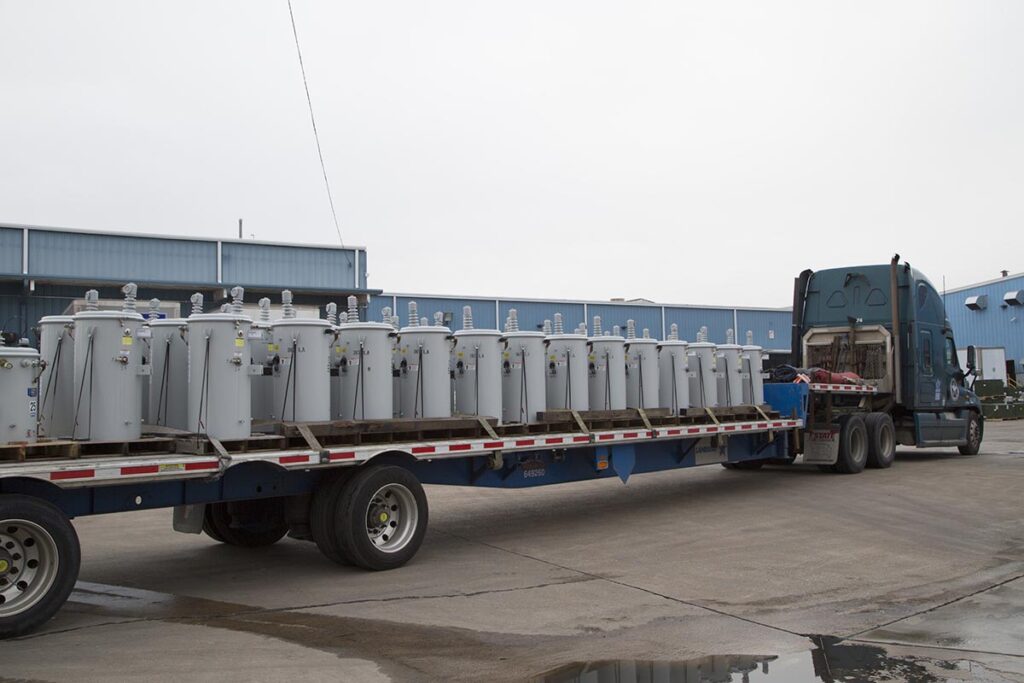
NRECA is supporting a bipartisan Senate bill that seeks to prevent electric cooperatives from having to wait even longer to get the distribution transformers they need to modernize their systems and help communities recover from disasters.
The Distribution Transformer Efficiency and Supply Chain Reliability Act of 2024 would effectively override a proposed rule from the Department of Energy.
That rule, if finalized as initially proposed, would marginally increase efficiency while effectively requiring all distribution transformer cores to be made with amorphous steel by as early as 2027, said NRECA Legislative Affairs Director Will Mitchell.
The DOE says amorphous steel cores save energy because they capture and transmit more electricity. However, the U.S. currently makes 95% of its distribution transformers with grain-oriented electrical steel and has only one small domestic producer of amorphous steel.
The legislation introduced Thursday by Sens. Sherrod Brown, D-Ohio, and Ted Cruz, R-Texas, would prevent grain-oriented electrical steel from being forced out of the market. It also would give transformer manufacturers 10 years to begin meeting higher efficiency standards, allowing a gradual phase-in.
“This legislation is a bipartisan antidote to DOE’s unworkable proposal to rapidly tighten transformer efficiency standards, which would exacerbate the already long lead times electric cooperatives face to obtain distribution transformers,” said NRECA CEO Jim Matheson.
“The bill would allow for the adoption of an updated standard over a more realistic timeframe while ensuring the appropriate supply of grain-oriented steel that manufacturers need to speed transformer production.”
Supply chain challenges that began during the COVID-19 pandemic have continued to cause severe delays for co-ops trying to buy new transformers. The problem has been complicated by record demand for electric grid components nationwide and a shortage of skilled workers to produce transformers, Mitchell said.
In a recent letter to Senate leaders, NRECA and other interested groups said that the average time it takes to order and receive a new distribution transformer is about two years—twice what it was before the pandemic.
The bill is supported by ERMCO, the Tennessee-based manufacturer that is the nation’s largest producer of oil-filled distribution transformers. Cleveland Cliffs of Ohio, ERMCO’s primary steel supplier, also favors it.
“A strong domestic supply of transformers is crucial to our electric grid and our energy independence,” Brown said. “We need to meet increasing demand for transformers, while keeping this critical supply chain in the U.S. and making sure the Department of Energy gets it right. That’s why we introduced this bill with a new standard that supports American jobs and our energy independence.”
Cruz called DOE’s proposed rule “a misguided effort to improve efficiency.”
“We all agree that efficient energy is a good thing that benefits consumers, but by effectively forcing the distribution transformer industry to change the type of steel it uses almost overnight, DOE’s rule would actually jeopardize electricity distribution for millions of Texans and Americans, with potentially disastrous results during extreme weather.”
Erin Kelly is a staff writer for NRECA.